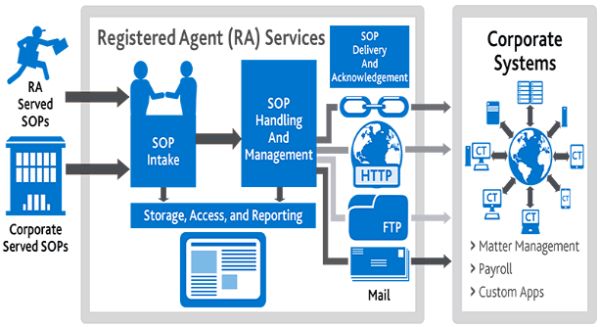This article discusses the role of Registered Agents in managing Service of Process (SOP), a critical part in your business risk mitigation strategy, and how to choose the right Registered Agent.
Service of Process and Registered Agents
Service of Process (SOP) is where a party to a lawsuit gives appropriate notice to another party, thereby initiating legal action. Corporations are required by state law to maintain an agent of record for acceptance of service of process in each state where they actively conduct business with the public.
Registered Agents, Authorized Agents and Statutory Agents
A Registered Agent, also known as an authorized agent or statutory agent, is a person or company designated by the corporation to accept service on behalf of the corporation. The Registered Agent receives and routes service of process appropriately, confirms accuracy of the information and determines next steps for handling the service of process, based on agreement with the served entity. Accurate, reliable, and timely handling of service of process is critical to reduce the business risks of default judgments and non-compliance.
The Registered Agent plays a vital role in intake and processing service of process, enabling corporations to manage them effectively. When choosing a Registered Agent, the agent's own SOP management capability is a key factor. A wide array of process types (lawsuits, garnishments, levies, etc.) may mean different processes, different departments/staff associated with processing different services, and require integration with different systems. This mandates that the Registered Agent be flexible and streamlined in its SOP management.

A Flexible and Streamlined SOP Management Process includes:
- SOP handling and management tailored to the individual corporation's requirements
- Ability to easily integrate SOP management into existing systems (such as matter management and payroll) and workflows
- Custom SOP workflow design and implementation capabilities
- Ability to automate SOP routing and tracking
- Web-based access for viewing, searching, tracking and reporting on SOPs
- Ability to streamline SOPs served direct to the corporation and to the Registered Agent for effective consolidated management
- On-going updates to keep up with changing state regulations.
The content of this article is intended to provide a general guide to the subject matter. Specialist advice should be sought about your specific circumstances.

